Stephanie M.
I'm a content writer and novelist who loves books, writing, theater, and my cat. I have published two novels and traveled to London and Paris.
Columnist III
- Plebian Penman
- Common Writer
- Aristocratic Author
- Noble Scribe
- Lurker
- Pssst
- Hand Raiser
- Vocal
- Outspoken
- Extrovert
- Center of Attention
- Forms a Crowd
- Sharp-Eyed Citizen
- Town Watch
- Detective Deskman
- Penman Patrol
- Forensic Fiend
- Motivational Columnist
- Motherboard
- Composition
- Literary Art
- Referencer
- Actor
- Successful Pilot
- Animator
- Animaniac
- Well Read
- Chaptered Mind
- Art Collector
- Article of the Month
- ?
- Articles
37 - Featured
33 - Comments
668
- Ext. Comments
319 - Processed
183 - Revisions
180
- Topics
78 - Topics Taken
5 - Notes
243
- Topics Proc.
74 - Topics Rev.
16
- Points
12301 - Rank
4 - Score
8476
Latest Articles
Latest Topics
The Questions of "Demonic" AnimationAnimated series such as Hazbin Hotel and Disney’s Little Demon have gained popularity over the last year. Some fans are attracted to elements like the musical structure of Hazbin, while others are drawn to sharply drawn and multifaceted characters, as well as irreverent humor and a safe way to explore the darker side of the afterlife. Yet, just as many other media consumers find this "demonic" animation offensive. For some, it goes against the tenets of their personal faith, particular Abrahamic religions, to consume these shows. Others find the demonic characters and landscape inappropriate for the kids at which some animation is aimed, or inappropriate for a mixed audience. Still others question why this material is so easily greenlit and produced while other material, such as films like Sound of Freedom, faced backlash and "cancelling" attempts due to graphic, yet realistic content at least somewhat based on true events. Analyze and discuss this "demonic" animation. Beyond its target and niche audiences, does it have any merit and if yes, for whom or in what way? Should there be a "heavenly" counterpart, and if yes, what would that look like (if not, why wouldn’t it work)? If demonic animation should be "replaced" because it’s inappropriate in any way, are there shows or other forms of media that would attract audiences the same way? |
The Enduring Power of MarioIt seems like Mario and Luigi have been around since time immemorial. What began as an eight-bit video game with the goal of rescuing a princess from a dragon in the ’80s and ’90s, has become a veritable empire of games. From the 3-D Nintendo 64 edition of the original, which expanded Mario’s worlds and took the U.S. by storm circa 1996, to the nostalgic yet evergreen Mario Kart, to the newest addition Princess Peach Showtime, Mario has reached a broader audience than perhaps any other game franchise. Discuss the popularity of the Mario-verse and why its creators have been so successful in marketing not only the original games, but also games in completely different genres (racing, fashion and dress-up, and so on). You might choose to discuss characters and how their universes and personalities have expanded over time. Finally, you could speculate on where the Mario-verse might go next, and what worlds and ideas Gen Z and Alpha might find most appealing. |
Pending | The Layered Questions ofThe animated series Hazbin Hotel premiered a year ago amid plenty of controversy.
|
Writing Love Triangles WellLove triangles are often associated with romantic fiction, but are also common in other genres like young adult, fantasy, or speculative fiction. A love triangle usually involves a female protagonist being pulled between two male love interests, but can be gender-inverted or use LGBTQ examples. This trope is popular among many readers, but just as many claim to hate love triangles. Detractors say the trope is overused, with players often too attractive or otherwise perfect to be believed, and surrounding situations that are contrived if not outright cliche. Using some of your favorite–and perhaps least favorite–examples of love triangles, discuss what sets some apart from others. What does it take to write a love triangle well? What are some common mistakes authors make when writing this trope? Why and how can a badly written love triangle still have legions of fans? Has the trope evolved in any significant way, and if so, what new versions and expectations should authors be aware of?
|
Screen Queens: The Influence of Golden Age ActressesAudrey Hepburn, Julie Andrews, Vivien Leigh, Marilyn Monroe, and several other actresses are legends in Hollywood history. Although most are now deceased, these women have made indelible marks on their genres and the film industry as a whole. Most of these "screen queens" are in fact so iconic, one mention of certain films they starred in brings that actress to mind. Some have played roles so well, their names are inextricably linked with their characters, to the point that some viewers believe no one else could ever fill that actress’ shoes. Compare and contrast 2-3 of these "screen queens," or others you might think of. What did they bring to iconic roles that arguably, no one else could? What did their presence do for Hollywood history, and what changes did they precipitate? Can any of today’s actresses hope to live up to these women, and are there in fact "modern" versions of them today? If yes, do the modern actresses do their forerunners justice? |
Twelve Days of Christmas: An AnalysisThe Twelve Days of Christmas is one of the best known, and arguably more exhausting and annoying, Christmas songs in existence. It’s so complex and has been around for so long, one might expect it to have vanished from the carol canon decades ago. However, the carol lives on, as do the stories and legends behind it, and the projects it has inspired. Origin stories float around social media every year. Perhaps the most popular claims that the carol was a way for Catholics in King James I’s era to express their faith without fear of persecution (the partridge is Jesus Christ, the three French hens are faith, hope, and charity, and so on). Another origin story claims every gift in the carol is a different bird, not just the gifts directly associated with birds (e.g., "five golden rings" refers to ring-necked pheasants). Along with this, touching or funny riffs on the carol are found in almost every fandom and subculture (Harry Potter, Redneck 12 Days, 12 Days based around political satire, and more). Hallmark’s expansive list of holiday movies includes no less than two based on the conceit of giving 12 meaningful gifts. Even some of today’s more orthodox church denominations (Catholic, Eastern Orthodox, and others), still treat Christmas as a 12-day affair, ending on the Day of Epiphany. Examine how and why the 12 Days of Christmas, song and concept, are so ingrained in our culture even if not everyone celebrates the holiday as such. Pick a few origin stories or 12 Days-inspired projects to analyze. What does this carol and concept mean for us? What is it about the concept that has staying power, even if some people dislike the song? Are some inspired projects better at capturing the spirit of 12 Days than others? What might a literal or figurative "12 Days" look like for secularized culture, and would it make the holidays better or worse? Both? Discuss.
|
The Cultural Impact of Elf on the ShelfIn 2005, Carol Abersold and her daughter Chanda Bell dreamed up a new Christmas tradition. Parents could purchase one of Santa’s elves, a cute little creature sent to "scout" for Santa and report whether the kids in a certain home had been good. The elf would stay with their chosen family from December 1-25, getting up to creative antics while the kids were asleep every night. The combination elf doll and book were an instant smash hit with their target demographic. In almost 20 years since inception, the original white, blue-eyed male elf has received female counterparts, as well as Black and Latino/a counterparts, male and female. Parents of disabled children have bought or handmade accessories like wheelchairs or braces for their dolls. The Elf on the Shelf has its own theme song and has spawned a made-for-TV movie, as well as a 2023 elf-themed baking competition on Food Network. However, not everyone wants this elf on their shelf. Every year, parents flock to social media to panic–"It’s almost December 1 and I can’t find the elf/I need an elf!" They commiserate with fellow parents and guardians–"I hate this [darn] elf!" Parents, teachers, and child development experts have excoriated the elf as a "Christmas spy," a tool that encourages extreme behaviorist thinking and doesn’t contribute to concepts of grace, making mistakes and learning from them, or doing well without doing perfectly. In a season where kids are already excited, anxious, and overstimulated, the elf feels like an enemy. Plus, many parents find it "just plain creepy." Discuss the pros, cons, and cultural impact of the Elf on the Shelf, as well as any alternatives you know (e.g., Kindness Elves, elves who use their time to make the journey to Bethlehem, elves who celebrate Hanukkah or Diwali). Why do you think culture embraced or rejected the Elf on the Shelf? In what capacity if any was it needed? Do alternatives "work," or do we need better alternatives, if any? Will the phenomenon ever leave us? Choose a couple of these or other questions upon which to expound. |
Can Creators Redeem the Horror Genre's Inherent Ableism?Whether or not it’s "spooky season," the horror genre has hordes of devotees, and well it should. Horror gives us a safe outlet for facing our fears, exploring our inner demons, and pitting our inner heroes against some of the most frightening scenarios ever conceived in creators’ minds. Whether in books, in film, on the stage, or in some other medium, horror has earned its place as a revered genre. However, the 21st century has exposed a particular underbelly of horror: ableism. Many if not most horror villains either have some sort of disfigurement or disability, or can be read or "coded" as such. Frankenstein’s monster is a reanimated, grotesque corpse who speaks and acts like a caricature of an intellectually disabled man. The impetus for Dracula and vampires came from sufferers of porphyria, a fairly rare disease still poorly understood. Several seasons of American Horror Story, notably Asylum and Freak Show, paint disabled characters as frightening or grotesque if not outright villainous; at best, these characters are pitiable. The recent TV series Changeling centers on a demonic being whose changeling status has been compared to autism for centuries. Stephen King’s disabled horror characters aren’t villains, but are stereotypes, and pop up in almost all his novels. These examples might tempt us to "cancel" horror altogether, and certainly, the ableism within warrants serious discussion. But is there a way to stay true to the horror genre in coming years without sacrificing its conventions (e.g., updating classics to the point of unrecognizability)? Can a form of "new horror" decry ableism while bringing true dignity to coded disabled characters, or characters who are shunned or feared? Discuss.
|
Latest Comments
| Movies & Media as the Source of AI Phobia | |
True, but then again, who isn’t greedy, at least occasionally? More to the point, who if anyone can we trust to handle AI so the “phobia versions” don’t become reality? (Cue the opening of another can of worms…) | Movies & Media as the Source of AI Phobia |
Fascinating and thorough, particularly the themes of matriarchy. Nice job! | Gender Roles in The Wheel of Time Series |
I had a few Black dolls, but looking back, wish I had a more varied collection. IMHO, the Black and ethnic versions of dolls (e.g., Barbies) are generally prettier and more detailed than their white counterparts. Plus, I remember always feeling a little annoyed that most white dolls were blue-eyed and blonde, which I am not (hazel-eyed, auburn/brown). | Returning Gravitas to American Girl |
Oh, that’s lovely. 🙂 I grew up with the original 5-7, and liked them all for different reasons (Molly was the only one who wore glasses, Addy had the best plot and we both loved academics, Kirsten was my first, etc.) My mom especially loved Felicity and went ga-ga over her red hair. | Returning Gravitas to American Girl |
I hear a lot of people feel that way about dolls. I never had that fear, probably because I played with them a lot and both my grandmas collected them. Thus, dolls were as commonplace as other furniture for me. This said, I can definitely understand where the fear comes from. Doll design evolves and continues doing so all the time. Looking at some of the older ones I do think, “Why would an adult think any child would want to play with something that looks so haunting?” As for the newer ones, they can be a bit unsettling if a bunch are together (e.g., girls who play with AG now tend to collect a bunch. If you consider things like the similarity of the face molds, yeah, that could be creepy). | Returning Gravitas to American Girl |
Oh, I love that idea! I own the original five large dolls but have entertained the idea of purchasing minis of the ones I never got. | Returning Gravitas to American Girl |
@mort: I had never heard of the Sasha dolls, but yes, they do sound intriguing and warrant discussion, especially in an era where the concepts of race and gender are timely, hot, and evolving. | Returning Gravitas to American Girl |
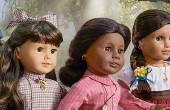
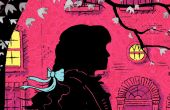

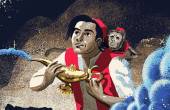

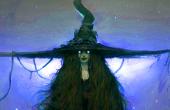
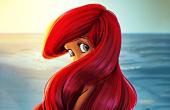
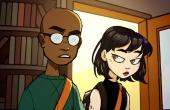
My instinct is to say you can’t, but there is usually a way to opt out of these things. It may just be more complicated than you want to deal with. It’s like wanting to opt out of the Internet or public school. Can you? Yes, absolutely. Is it physically, mentally, and emotionally costly? Yes, so that kind of decision needs to come with some soul-searching, as odd as that might sound.